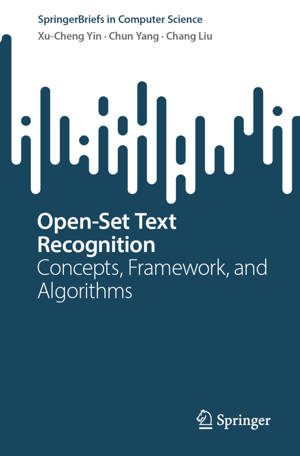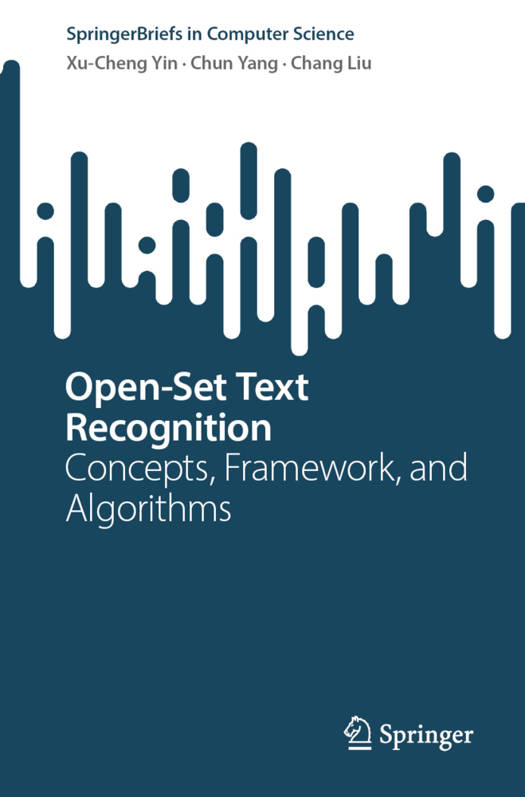
- Afhalen na 1 uur in een winkel met voorraad
- Gratis thuislevering in België vanaf € 30
- Ruim aanbod met 7 miljoen producten
- Afhalen na 1 uur in een winkel met voorraad
- Gratis thuislevering in België vanaf € 30
- Ruim aanbod met 7 miljoen producten
Omschrijving
In real-world applications, new data, patterns, and categories that were not covered by the training data can frequently emerge, necessitating the capability to detect and adapt to novel characters incrementally. Researchers refer to these challenges as the Open-Set Text Recognition (OSTR) task, which has, in recent years, emerged as one of the prominent issues in the field of text recognition. This book begins by providing an introduction to the background of the OSTR task, covering essential aspects such as open-set identification and recognition, conventional OCR methods, and their applications. Subsequently, the concept and definition of the OSTR task are presented encompassing its objectives, use cases, performance metrics, datasets, and protocols. A general framework for OSTR is then detailed, composed of four key components: The Aligned Represented Space, the Label-to-Representation Mapping, the Sample-to-Representation Mapping, and the Open-set Predictor. In addition, possible implementations of each module within the framework are discussed. Following this, two specific open-set text recognition methods, OSOCR and OpenCCD, are introduced. The book concludes by delving into applications and future directions of Open-set text recognition tasks.
This book presents a comprehensive overview of the open-set text recognition task, including concepts, framework, and algorithms. It is suitable for graduated students and young researchers who are majoring in pattern recognition and computer science, especially interdisciplinary research.Specificaties
Betrokkenen
- Auteur(s):
- Uitgeverij:
Inhoud
- Aantal bladzijden:
- 121
- Taal:
- Engels
- Reeks:
Eigenschappen
- Productcode (EAN):
- 9789819703609
- Verschijningsdatum:
- 2/04/2024
- Uitvoering:
- Paperback
- Formaat:
- Trade paperback (VS)
- Afmetingen:
- 156 mm x 234 mm
- Gewicht:
- 199 g

Alleen bij Standaard Boekhandel
Beoordelingen
We publiceren alleen reviews die voldoen aan de voorwaarden voor reviews. Bekijk onze voorwaarden voor reviews.












